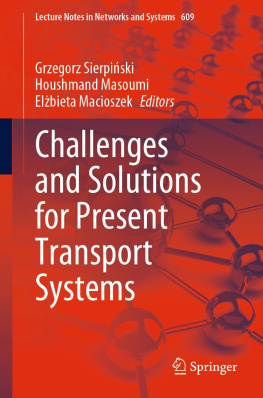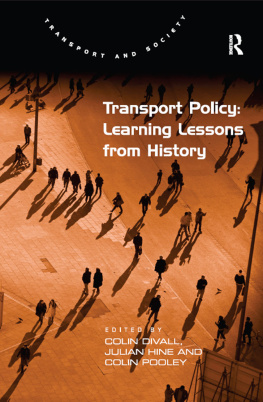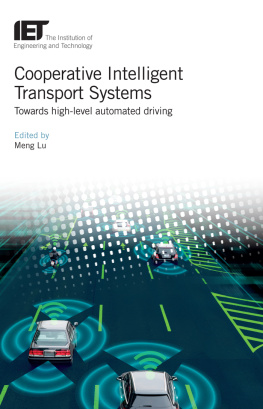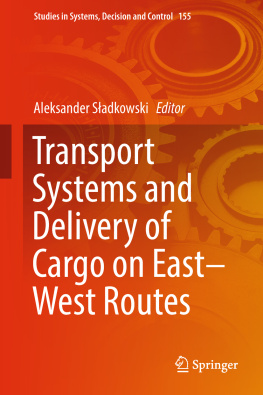Community-Owned Transport
City and state governments around the world are struggling to achieve environmentally sustainable transport. Economic, technological, city and transport planning and human behaviour solutions are often hampered by ineffective implementation. So attention is now turning to institutional, governmental and political barriers. Approaches to these implementation problems assume that transport ownership can only be public (owned by state entities) or private (corporate or personal). Another option largely unexplored to date is communal ownership of transport.
Community-Owned Transport proposes and develops the notion that communal ownership has a historical basis and provides unique opportunities for providing personal mobility. It looks at the historical roots of modern urban transports failings as those of technological change and the associated governing of transport systems, particularly the role of public sector institutions. Community ownership is explored through the new sharing economy developments car sharing, ridesharing and bicycle share schemes and older social innovations in ecovillages and communal living. Models and practices of community ownership of transport are provided and this study also discusses how community ownership might contribute to sustainable transport.
Drawing widely on different disciplines and fields of scholarship, this book explores the conceptual and practical aspects of communal ownership of transport. It will be a valuable resource for those seeking innovative approaches to addressing the pressing problems of transport, including graduate and postgraduate students, as well as policymakers, practitioners and community groups.
Leigh Glover is the former Director of the Australasian Centre for the Governance and Management of Urban Transport (GAMUT) at the University of Melbourne, Australia.
Transport and Mobility
Edited by Richard Knowles and Markus Hesse
The inception of this series marks a major resurgence of geographical research into transport and mobility. Reflecting the dynamic relationships between socio-spatial behaviour and change, it acts as a forum for cutting-edge research into transport and mobility, and for innovative and decisive debates on the formulation and repercussions of transport policy making.
For a full list of titles in this series, please visit www.routledge.com/Transport-and-Mobility/book-series/ASHSER-1188
Port-City Interplays in China
James Jixian Wang
Institutional Challenges to Intermodal Transport and Logistics
Governance in Port Regionalisation and Hinterland Integration
Jason Monios
Sustainable Railway Futures
Issues and Challenges
Becky P.Y. Loo and Claude Comtois
Mobility Patterns and Urban Structure
Paulo Pinho and Ceclia Silva
Intermodal Freight Terminals
A Life Cycle Governance Framework
Jason Monios and Rickard Bergqvist
Railway Deregulation in Sweden
Dismantling a Monopoly
Gunnar Alexandersson and Staffan Hulten
Community-Owned Transport
Leigh Glover
Geographies of Transport and Mobility
Prospects and Challenges in an Age of Climate Change
Stewart Barr, Jan Prillwitz and Gareth Shaw
Community-Owned Transport
Leigh Glover
First published 2017
by Routledge
2 Park Square, Milton Park, Abingdon, Oxon OX14 4RN
and by Routledge
711 Third Avenue, New York, NY 10017
Routledge is an imprint of the Taylor & Francis Group, an informa business
2017 Leigh Glover
The right of Leigh Glover to be identified as author of this work has been asserted by him in accordance with sections 77 and 78 of the Copyright, Designs and Patents Act 1988.
All rights reserved. No part of this book may be reprinted or reproduced or utilised in any form or by any electronic, mechanical, or other means, now known or hereafter invented, including photocopying and recording, or in any information storage or retrieval system, without permission in writing from the publishers.
Trademark notice: Product or corporate names may be trademarks or registered trademarks, and are used only for identification and explanation without intent to infringe.
British Library Cataloguing in Publication Data
A catalogue record for this book is available from the British Library
Library of Congress Cataloging in Publication Data
Names: Glover, Leigh, author.
Title: Community-owned transport/Leigh Glover.
Description: Abingdon, Oxon; New York, NY: Routledge, 2016. |
Series: Transport and mobility | Includes bibliographical references and index.
Identifiers: LCCN 2016027090 | ISBN 9781472433800 (hardback) |
ISBN 9781315573021 (ebook)
Subjects: LCSH: Urban transportation. | Local transit. | Cooperative societies. | Public-private sector cooperation. | Community development.Classification: LCC HE305 .G59 2016 | DDC 388.4/042dc23
LC record available at https://lccn.loc.gov/2016027090
ISBN: 978-1-4724-3380-0 (hbk)
ISBN: 978-1-315-57302-1 (ebk)
Typeset in Times New Roman
by Deanta Global Publishing Services, Chennai, India
For Annie
Contents
From the classical philosophers to contemporary social scientists and social commentators, freedom has been a major topic for contemplation, aspiration and foundation of political and religious values. Freedom is tied to ideals that are held high in contemporary society, such as self-determination, individual expression, creativity and autonomy. Freedom features strongly in national anthems, national constitutions, party political aims and in revolutionary political works. In contrast, passenger transport is a mundane idea; it is the dull means to desirable ends the freedom to change location. While freedom is deemed an ideal worthy of seeking and protecting by fighting wars, forging revolutions and a rallying cry for great self and national sacrifice, it would be ludicrous to suggest that urban transport carries anything like the same meaning. Freedom is an inescapably political concept but transport is just a neutral technical system without political values or symbolic importance. Transport is just about getting from A to B. Or is it? Without urban transport, there is no freedom of mobility. All the political debate and contemplation about freedom in an abstract sense can be applied to urban transport. Political values, choices, public institutions, rights of individuals, equality and equity, justice and the limits of authorities and exercise of power are all issues relevant to urban transport. A family standing at the roadside by a lonely sign in the hot sunshine waiting for a city bus whilst private motorcars stream past in their thousands in air-conditioned comfort is an outcome of politics. In the developed world, we have been very good at talking in the abstract about freedom and very poor at thinking about the politics of urban mobility or considering the political causes and implications of urban mobility.
This work concerns a novel idea for providing urban passenger mobility, that of community ownership. There is nothing new about communal ownership; indeed, collective possession by a community or other social group is as ancient as individual ownership and certainly older than the relatively modern concepts of state or corporate ownership. What is novel is considering community ownership models for widespread application and commonplace use in contemporary urban transport. While there have been interesting examples of communal ownership of transport, it has not, to my knowledge, been promoted as an idea with wider potential application.







